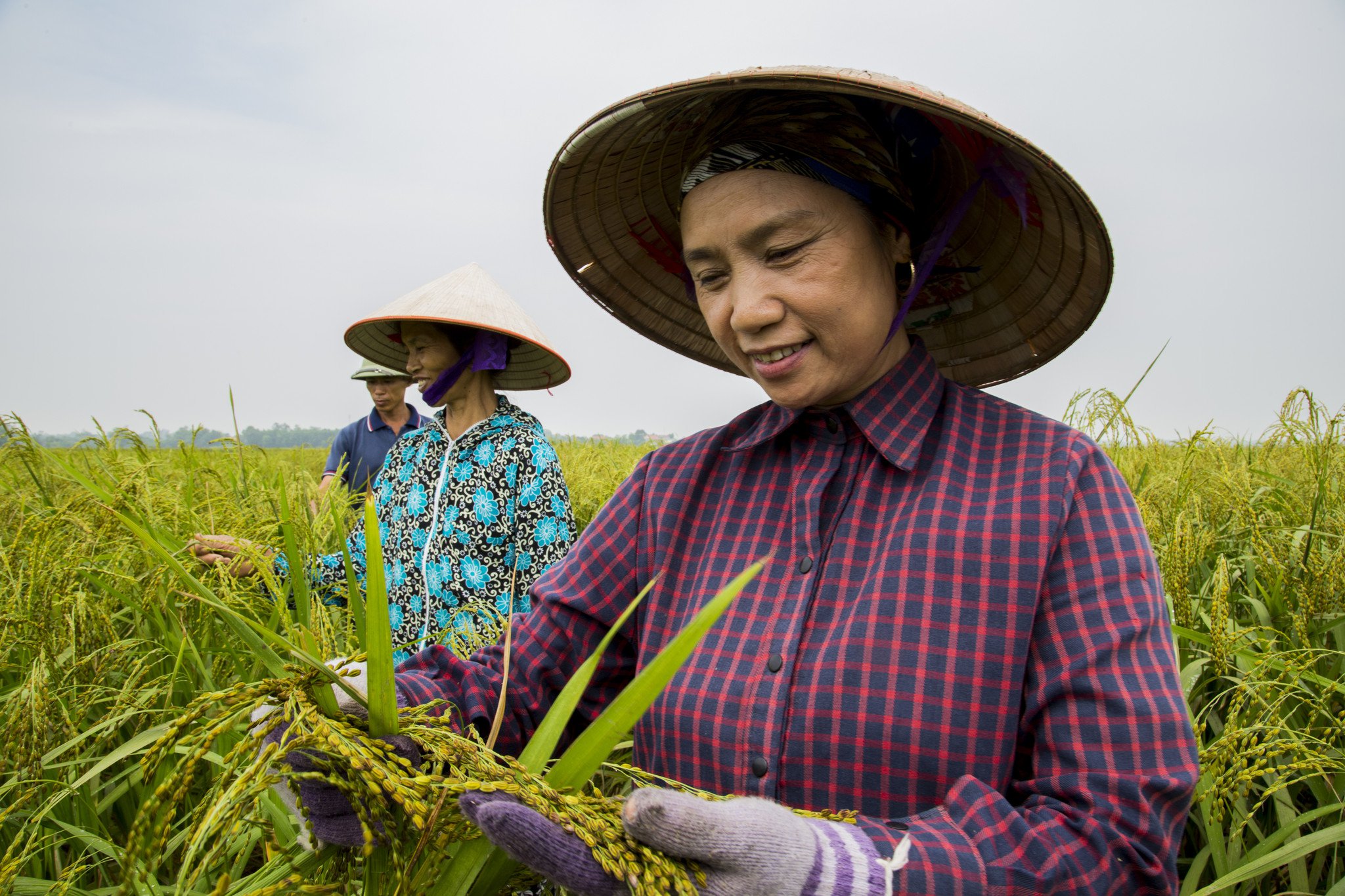Oxfam zeroes in on four areas to create lasting solutions
Is it actually possible to reach a day when no one lives in poverty? Oxfam believes it is—and we can get there by tackling the root causes of poverty. This demands ambitious and practical responses, but all of us—those living in poverty and those who are not—can find and implement solutions.
We invest in four focus areas in the countries where we work:
1. Humanitarian Crises
When disasters strike, poor and vulnerable communities are often the hardest hit. Oxfam teams up with local leaders to rebuild livelihoods and stabilize communities, and to secure resources so communities are better prepared to withstand future crises.

When Oxfam began working in Puerto Rico in the aftermath of Hurricane Maria, we turned to activist Carmen Villanueva for guidance. People in her working-class Hill Brothers neighborhood in San Juan had lost their jobs, basic services had disappeared, and so many were desperately wondering how they were even going to feed their children.
We worked with Villanueva to distribute water filters, asking her: Who had the gravest needs and could benefit most from the filters? Her response was community-minded: Let households share the filters so everyone has access.
2. Power and money
Unequal distribution of power and information are some of the root causes of poverty. Oxfam works to ensure money flows in developing countries from taxes, foreign aid, and natural resource revenues are transparent so people can hold the powerful accountable.

In Peru, investors and local officials are grabbing land from poor villagers and contributing to deforestation in the Amazon. The land these outsiders are grabbing is the ancestral home of the Shipibo indigenous people, who have been here for centuries.
Oxfam is helping local communities defend their rights to own and manage their ancestral territories, invoking national and international laws overlooked by some corrupt local officials. Land use violations, claims from indigenous communities, and land grabs are being exposed to legal action, and in the media, thanks to support from Oxfam and our partners and allies who are advocating for justice.
3. Food systems
Our planet produces enough food to feed us all. Yet more than 815 million people go to bed hungry. The ways we grow, process, and sell our food are unsustainable and unadaptable. That’s why Oxfam and our partners take on local, national, and global food systems.

Oxfam teamed up with the Vietnamese government to enable farmers to produce more rice by implementing a program called System of Rice Intensification (SRI), which teaches farmers to manage plants, seeds, soil, water, and nutrients more efficiently.
We trained a group of farmers, including Duong Thi Thanh, 54, a rice farmer who lives in the Thái Nguyên province in northeast Vietnam, to become mentors and pass on the new techniques to other farmers. The goal is to spread SRI across communities so that everyone can reap the benefits. She reports that all the farmers in her village are using SRI.
“Previously we grew enough rice to live but could not sell any to earn money,” she says. “Our price now is better because it is organic sticky rice. People know about it because it is a brand name now and certified organic, and I sell it for the other farmers.”
4. Gender justice
Women and girls make up a majority of the 1.2 billion people who live in extreme poverty. They tend to have fewer resources, rights, and opportunities to make life-shaping decisions than men do. Ending injustice begins with equal rights, and Oxfam works with men and women to ensure women have power over all aspects of their lives.

Saving for Change is a program that Oxfam and partners have launched in locations around the world to train groups of women to save money in weekly increments, pool their resources, and invest in one another’s small businesses. Members take out small loans to buy livestock, or goods to sell in the market, or whatever else they think of to generate an income, paying back the money on terms that the group itself has set.
In the North Darfur village of Shagra,Saving for Change groups are building resiliency by learning about nutrition and hygiene acquiring skills to improve their harvests.



